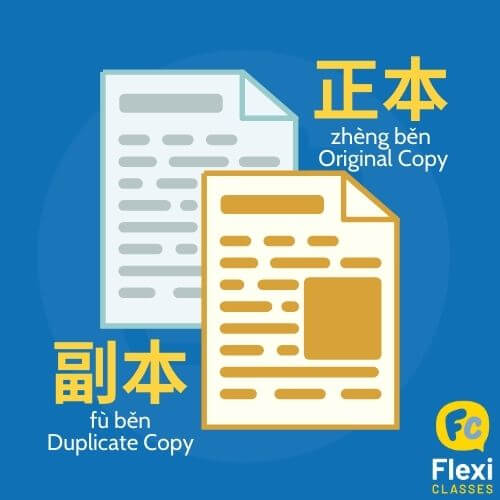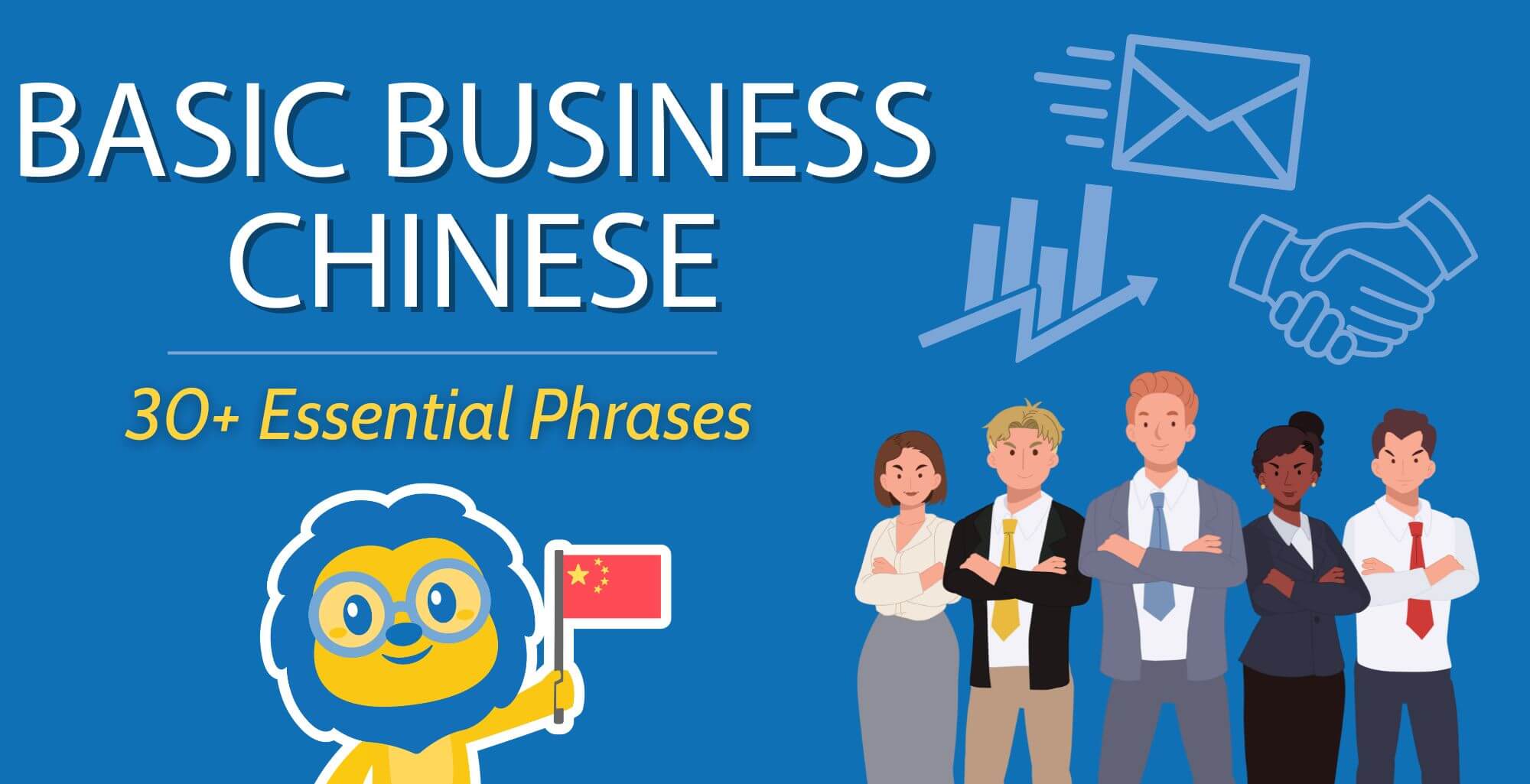30+ Phrases for Discussing Contracts and Agreements in Business Chinese
Contracts and Agreements in China 💼 Essential Vocabulary, Phrases and Cultural Insights

In the fast-paced environment of Chinese business, clear and precise communication is key to building trust, closing deals, and avoiding misunderstandings.
Whether you’re negotiating terms, reviewing contracts, or finalizing agreements, having the right vocabulary can make all the difference.
We’ve compiled 30+ essential phrases that will help you confidently discuss contracts and agreements in Mandarin Chinese.
These phrases cover everything from key contract terms to common expressions used during negotiations, ensuring you’re well-equipped for your next business meeting or transaction.
Let’s get started!
In this blog post, we’ll introduce you to the important terms and phrases for discussing contracts and agreements 👍🏻
Discussing Contracts and Agreements || Key Terms and Phrases in Contracts
Discussing Contracts and Agreements || Discussing Terms, Conditions, and Clauses
Discussing Contracts and Agreements || Tips for Effective Contract Negotiations
Discussing Contracts and Agreements || FAQs
Discussing Contracts and Agreements || Key Terms and Phrases in Contracts ✍🏻
First, let’s dive into the basic terms of contract discussions. If you’ve been studying Chinese for a while, you should know that a single character or tone change can drastically change the meaning.
Remember each work precisely as it ensures clarity in your agreements.
| CHINESE | ROMANIZATION | ENGLISH |
| 甲方 | jiǎ fāng | Party A |
| 乙方 | yǐ fāng | Party B |
| 合同 | hé tóng | Contract |
| 协议 | xié yì | Agreement |
| 签字盖章 | qiān zì gài zhāng | Sign and Seal |
For example, you’ll often hear the other party say, Party A is responsible for providing all materials.
甲方负责提供所有材料Jiǎ fāng fù zé tí gōng suǒ yǒu cái liào.
Party A is responsible for providing all materials
When prompting the other party to sign and seal the contract, you’ll hear:

乙方需要在合同上签字盖章
Yǐ fāng xū yào zài hé tóng shàng qiān zì gài zhāng.
Party B needs to sign and seal the contract
日期
rì qī
Date
For example, you will be prompted to note the date when signing. You’ll hear or could say:
请写上日期。Qǐng xiě shàng rì qī.
Please write the date.
正本
zhèng běn
Original Copy
副本
fù běn
Duplicate Copy
If you want to ask for the original copy of the contract, which is always great to do, you can ask:

你有合同的正本吗?Nǐ yǒu hé tóng de zhèng běn ma?
Do you have the original contract?
The phrase is normally used to indicate that the document is printed in two identical copies, one for each party.
一式两份
yī shì liǎng fèn
In duplicate

30+ Basic Business Chinese Vocabulary: Business Essentials
Do Business Like a Local || Commonly Used Business Chinese Vocabulary So, you have decided to do business in China. That’s great! However, you should be prepared to deal with locals who don’t speak English. If you want to develop…
Discussing Contracts and Agreements || Discussing Terms, Conditions, and Clauses 💡
条款
tiáo kuǎn
Clause
For example, when discussing the details of the clauses of the agreement, you’ll hear:
我们今天讨论协议的条款。
Wǒ men jīn tiān tǎo lùn xié yì de tiáo kuǎn.
We discuss the terms of the agreement today.

期限
qī xiàn
Term/Deadline
To specify the term, then you could ask:
合同的期限是多长时间?
hé tóng de qī xiàn shì duō cháng shí jiān?
How long is the contract?
These legal terms seem more complex. But they are the last phrases you’d want to overlook!
In case of any confusion involving these terms, always consult a legal expert. These are the terms you should be watching out for.
违约
wéi yuē
Breach of Contract
赔偿
péi cháng
Compensation
For example, to clearly specify the risk and penalty of breaking the contract, you could use this sentence:
如果发生违约,乙方需要支付赔偿。
Rú guǒ fā shēng wéi yuē, yǐ fāng xū yào zhī fù péi cháng.
If a breach occurs, Party B needs to pay compensation.
| CHINESE | ROMANIZATION | ENGLISH |
| 责任 | zé rèn | Liability |
| 仲裁 | zhòng cái | Arbitration |
| 终止 | zhōng zhǐ | Termination |
| 特定条件 | tè dìng tiáo jiàn | Specific Conditions |
For example, watch for this sentence.
合同可以在特定条件下终止
Hé tóng kě yǐ zài tè dìng tiáo jiàn xià zhōng zhǐ.
The contact can be terminated under specific conditions.
In this case, you’d definitely need to specify these potential conditions for termination.
Discussing Contracts and Agreements || Tips for Effective Contract Negotiations 🎯
✔️Respect Face and Develop Guanxi
关系 (guān xì) and 面子 (miàn zi) are important cultural elements when negotiating agreements in China. Cultivating your relationships of long-term trust can make both parties feel respected.
Learn more about Chinese Business Etiquette & Cultural Norms in our post below! 👇🏻

Chinese Business Etiquette and Cultural Norms: Do’s and Don’ts
Gain a Deeper Understanding of Business Culture and Build Strong Business Relationships in China 💼 Cultural elements (and differences!) play a vital role in business. This is especially true if you come from a Western culture and want to develop…
Sincerity is the most important attitude, no matter what the outcome is.

Learn to use these phrases to express your commitment to working with a Chinese partner.
This slang shows a strong dedication to keeping your word.
一言为定
It’s a dealChinese appreciate loyalty. Always taking care of their business and building trust can be a useful leverage to negotiate a better price or clauses for the agreement.
So you can use these phrases to emphasize your loyalty.
| CHINESE & ROMANIZATION | ENGLISH |
|
我们是老生意伙伴
wǒ men shì lǎo shēng yì huǒ bàn | We are business partners for a long time. |
|
我们是老客户
wǒ men shì lǎo kè hù | We have been loyal customers |
These phrases also express strong sincerity in serving your clients and reaching a partnership with the other party.
They are very helpful in developing Guanxi with your potential partners 👇🏻
| CHINESE & ROMANIZATION | ENGLISH |
|
这是我们应该做的
zhè shì wǒ men yīng gāi zuò de | This is our job. |
|
预祝我们洽谈成功
yù zhù wǒ men qià tán chéng gōng | Wishing us success in our negotiations |
❗Be Clear and Precise
It is always encouraged to discuss the terms and clauses early in the agreement discussion.
Even though the Chinese appreciate nice gestures of face culture and Guanxi, be clear in specifying the details of the contacts.
These phrases will help a lot in preventing risks and disputes at a later stage 👇🏻
| CHINESE & ROMANIZATION | ENGLISH |
|
这些条件是什么意思?
zhè xiē tiáo jiàn shì shén me yì si? | What do these conditions mean? |
|
能再解释一遍吗?
néng zài jiě shì yī biàn ma? | Could you explain that again? |
Chinese are used to bargain hard as an attitude. If you want to ask for a better price, you can use this phrase to put yourself in a lower position. It sounds like you’re also giving the other side some face.

按这个价格,我们太吃亏了
àn zhè ge jià gé, wǒ men tài chī kuī le
We are at a great disadvantage at this price.
When it comes to the details of money, it never hurts to be rigid.
You can always use these sentences to ensure both parties are on the same page for the payment details.
| CHINESE & ROMANIZATION | ENGLISH |
|
付款条件是什么?
fù kuǎn tiáo jiàn shì shén me? | What are the payment terms? |
|
我们需要商定付款方式。
wǒ men xū yào shāng dìng fù kuǎn fāng shì. | We need to agree on the payment method. |
Great. Now, we’ve covered all the necessary terms and phrases you will encounter when signing contracts in China. You should be in good hands if you remember them precisely.
Any questions for this topic? Drop them here!
Discussing Contracts and Agreements || FAQs
What are the basic terms I need to know when discussing contracts in Chinese?
: You should know 甲方 (jiǎ fāng) for Party A, 乙方 (yǐ fāng) for Party B, 合同 (hé tóng) for contract, 协议 (xié yì) for agreement, and 签字盖章 (qiān zì gài zhāng) for sign and seal.
How do I ask for the original and duplicate copies of the contract in Chinese?
To ask for the original copy, you can say 你有合同的正本吗? (Nǐ yǒu hé tóng de zhèng běn ma?). To indicate the document is in duplicate, you can use 一式两份 (yī shì liǎng fèn).
What phrase can I use to ask about the payment terms in Chinese?
You can ask 付款条件是什么? (fù kuǎn tiáo jiàn shì shén me?) which are clear and precise in addressing your question.
How can I ask for a better price during negotiations?
You can say 按这个价格,我们太吃亏了 (àn zhè ge jià gé, wǒ men tài chī kuī le), which means you’re at a great disadvantage at the current price. It’s commonly used to put yourself in a lower position and ask for a favour.
What phrases can I use to express my sincerity and commitment to a Chinese business partner?
You can say 我们是老生意伙伴 (wǒ men shì lǎo shēng yì huǒ bàn) which emphasizes that you have been partners for a long time with hard-built trust. Chinese people will appreciate that loyalty and Guanxi when doing businesses.
Want more from LTL?
We offer a 7 day free trial to all new students where you can study Mandarin 24/7. Come and check it out free of charge and see what you think.
We also offer immersive Chinese courses in China. You can learn more about those here.
Sign up below and become part of our ever-growing community.









